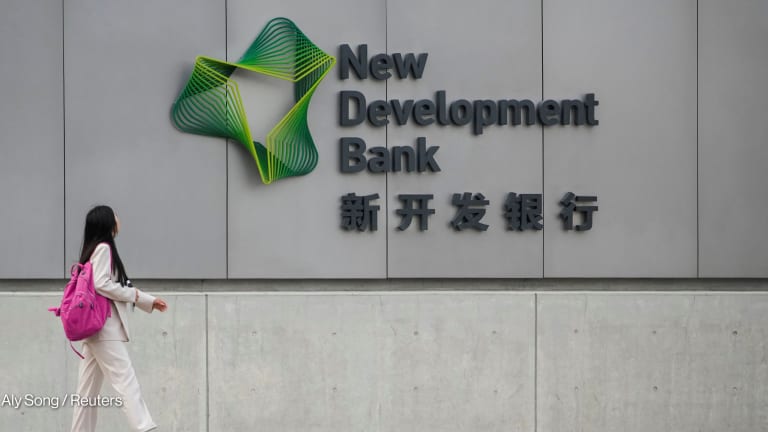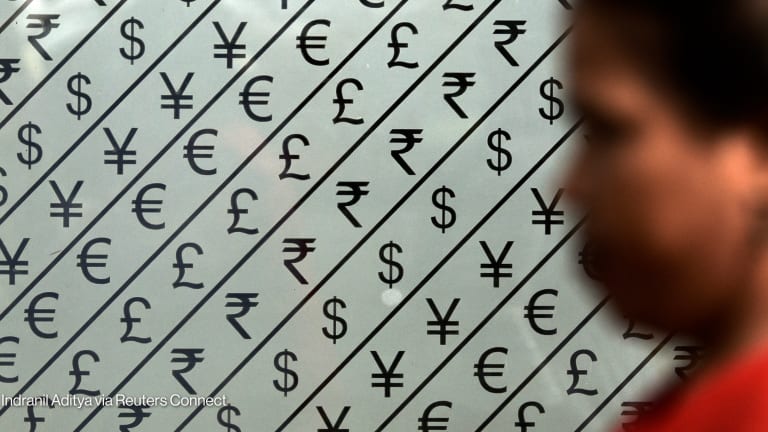At its annual conference in January, the European Investment Bank highlighted the €76.8 billion it invested in 2020 — 87% of which went to European Union countries, with 13%, or over €10 billion, invested in non-EU nations. It also unveiled its operational plan for 2021, which largely focuses on economic recovery following the COVID-19 pandemic but without abandoning other priorities such as climate and environmental sustainability. EIB has grown from the EU’s lending arm into one of the key financial institutions across the globe. Over time, it has established a presence in Africa that will likely expand in the coming years as part of the EU’s external action plans. As it vies with the European Bank for Reconstruction and Development for a greater role in steering EU investments in Africa, it is also trying to work more closely with EU delegations to enhance its presence beyond its Luxembourg headquarters. The bank has also entered into key agreements and partnerships focused on the region. The Africa Investment Platform, launched in 2015, aims to address funding gaps in sub-Saharan Africa, and Boost Africa, launched in 2016 as a joint initiative with the African Development Bank, seeks to create opportunities for young entrepreneurs. EIB has also announced new financing and technical support for the African Union’s Great Green Wall in the Sahel region. Most recently, it signed a joint partnership action plan with AfDB on strengthening the institutions’ cooperation with regard to boosting public and private sector investment in Africa. Devex tracks EIB’s investments, tenders, and contracts in Africa. In this article, we dive into the programs it financed in 2019 and 2020 to examine the bank’s growing spend in the continent. EIB’s expanding presence in Africa EIB approved €6.2 billion in financing for countries outside of the European continent in 2019, of which 49%, or €3 billion, went to Africa. That covered 37 projects worth €2.5 billion across 23 countries, as well as €548.9 million for 37 multicountry projects. Its funding in Africa rose by 60% in 2020 when it spent €4.8 billion there, or 66% of the total €7.2 billion in approved 2020 financing outside of the European continent — that is, outside of both EU nations and non-EU Balkan countries. This included 50 projects worth €4.1 billion across 25 countries, as well as €699.4 million for 22 multicountry projects. There were also 13 COVID-19 projects amounting to €1.8 billion. The most-funded multicountry project came under the COVID-19 Vaccine Volume Allocation, with €300 million to support Africa with the supply of COVID-19 vaccines to eligible countries. Which African countries is EIB investing in? In total, EIB invested €7.8 billion in 34 African countries during 2019 and 2020. The top-funded country across the two years was Egypt — which got 42% of the total, or €3.3 billion, for 10 projects — followed by Morocco with almost 12% for 11 projects, Nigeria with 6% for four projects, Niger with 2% for four projects, and South Africa with another 2% for three projects. Regional projects got almost 16%, or €1.2 billion, for 59 projects that ranged from strengthening microfinance facilities to COVID-19 responses. Mozambique saw the biggest jump in approved financing between the years, going from €5.4 million in 2019 for off-grid solar energy systems to €100 million in 2020 for a climate resilience initiative. There were a number of countries that received funding in one year but not the other. For example, Rwanda did not receive funding in 2019 but got €80 million in 2020, with co-financing from AfDB, for an electricity investment program. There were also investments in some of the lowest-income countries, such as a €45 million project for strengthening the electricity supply in Mali, a €30 million project for COVID-19 health sanitation in Benin, and a €15 million project for water and sanitation infrastructure in Burkina Faso. What sectors get the most funding from EIB in Africa? Aside from accelerating sustainable infrastructure projects and strengthening businesses in the private sector, EIB is also committed to investment opportunities that support climate action, economic resiliency, food security, gender equality, and regional integration for job creation. Across 2019 and 2020, projects related to credit lines were the most popular, with €3.7 billion for 44 projects supporting financial intermediaries such as private sector organizations, public sector enterprises that are commercially run, and local authorities. Egypt was the top-financed country in this sector, receiving 60% of the total for five projects catering to small and medium-sized enterprises. The transport sector followed with €1.3 billion for eight projects, focusing on road connectivity. Egypt also got the top funding here with two metro line infrastructure projects worth a total of €950 million. And Malawi received its largest EIB loan, with a 20-year tenor for €95.5 million to rehabilitate the critical M1 road to boost trade, reduce transportation, and improve safety. In 2020, global health was also one of the bank’s priorities, with a total of five coronavirus-related projects worth €545 million. What are EIB’s biggest programs in Africa? Both in 2019 and 2020, the majority of the top-funded projects were in Egypt. This is not surprising, given that it is EIB’s most-funded African country overall. In 2020, the NBE Loan for SMEs and Midcaps COVID-19 had the highest approved financing at €800 million. The project, which will be executed by the National Bank of Egypt, will extend loans to small and medium-sized enterprises and midcaps affected by the pandemic. Another top-funded project was the Urban Transport Infrastructure Framework Egypt worth €600 million, which will rehabilitate and expand the metro and transport systems in Alexandria and Cairo. For access to in-depth analysis, insights, and funding opportunities from over 850+ sources — combined with Devex Pro news content — sign up for Pro Funding or get in touch to learn about our Pro Funding group options.
At its annual conference in January, the European Investment Bank highlighted the €76.8 billion it invested in 2020 — 87% of which went to European Union countries, with 13%, or over €10 billion, invested in non-EU nations. It also unveiled its operational plan for 2021, which largely focuses on economic recovery following the COVID-19 pandemic but without abandoning other priorities such as climate and environmental sustainability.
EIB has grown from the EU’s lending arm into one of the key financial institutions across the globe. Over time, it has established a presence in Africa that will likely expand in the coming years as part of the EU’s external action plans. As it vies with the European Bank for Reconstruction and Development for a greater role in steering EU investments in Africa, it is also trying to work more closely with EU delegations to enhance its presence beyond its Luxembourg headquarters.
The bank has also entered into key agreements and partnerships focused on the region. The Africa Investment Platform, launched in 2015, aims to address funding gaps in sub-Saharan Africa, and Boost Africa, launched in 2016 as a joint initiative with the African Development Bank, seeks to create opportunities for young entrepreneurs.
This story is forDevex Promembers
Unlock this story now with a 15-day free trial of Devex Pro.
With a Devex Pro subscription you'll get access to deeper analysis and exclusive insights from our reporters and analysts.
Start my free trialRequest a group subscription Printing articles to share with others is a breach of our terms and conditions and copyright policy. Please use the sharing options on the left side of the article. Devex Pro members may share up to 10 articles per month using the Pro share tool ( ).
Miguel Tamonan is a Senior Development Analyst at Devex, where he analyzes data from public and private donors to produce content and special reports for Pro and Pro Funding readers. He has a bachelor’s degree in Political Science with a Major in International Relations from the Polytechnic University of the Philippines.
Janadale Leene Coralde works as a contributing analyst for Devex. Based in Manila she reports on development donors activities and designs funding data visualisations. She has a degree in political economy, specializing in international relations and development, and has previously worked as a researcher for Chemonics, the REID foundation, and the Philippines House of Representatives.









